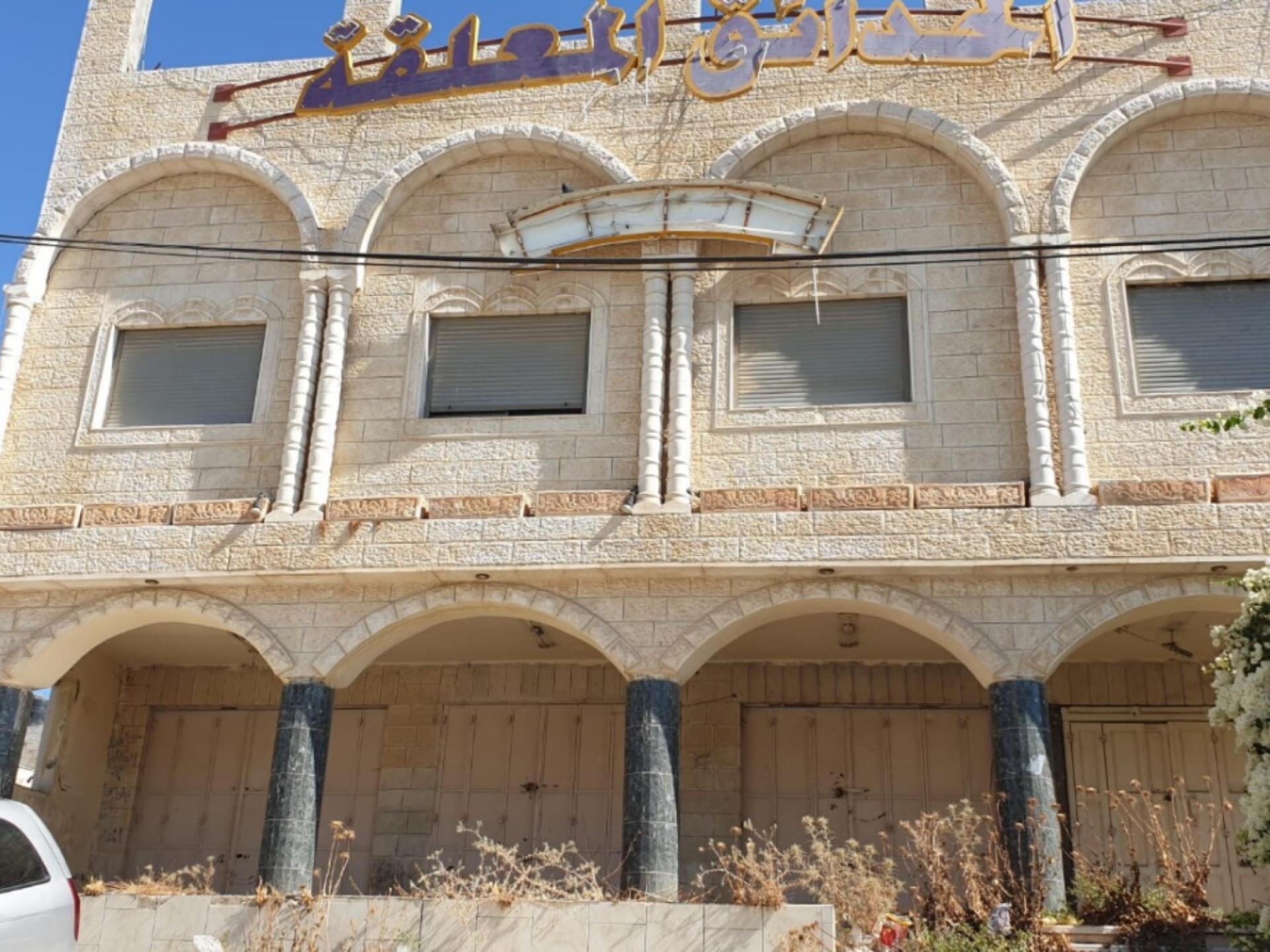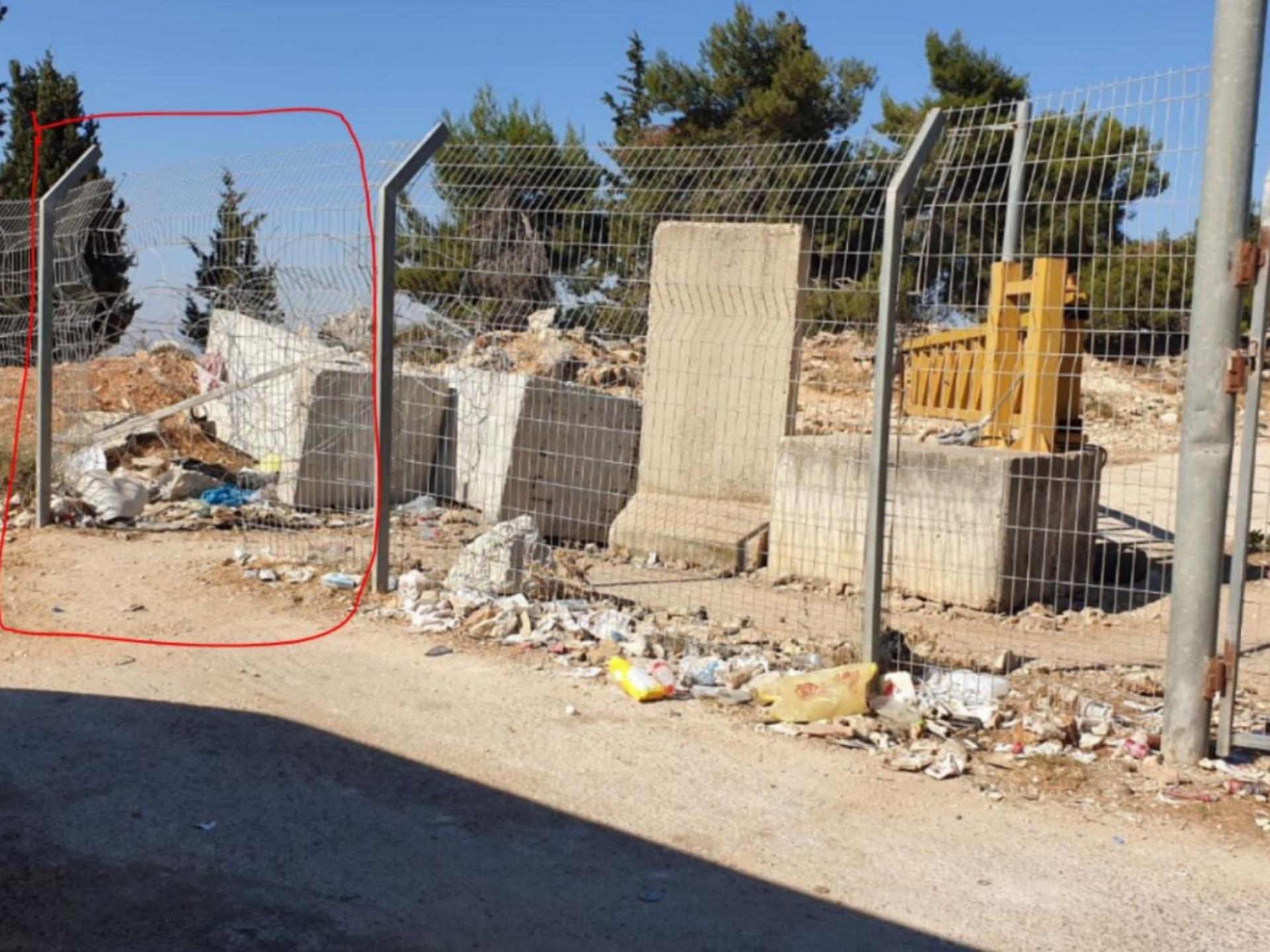In the Palestinian-Jerusalem neighborhoods, taxpayers to the municipality do not receive municipal services
This time the traffic light at the Shuafat refugee camp junction is working properly (a traffic router on the road to Jerusalem and Pisgat Ze'ev), but still there is a large traffic jam from the camp to the checkpoint, despite the school holidays. It is a pity that they do not think of a roundabout or a "smart traffic light" that will improve the quality of life for the many property taxpayers in the camp, who barely receive services if any. Buses for trips with children pass without inspection, while regular buses drop off passengers and check certificates and permits on the checkpoint's computer. If the inquiry is delayed, the bus does not wait for the detainee.
We drive to see the school that was destroyed this week in the Shalom neighborhood, which is part of the camp located on Jerusalem's municipal territory. It is strange that there is a lot of new construction around it, but this private school has already been destroyed twice. Even Ir Amim did not know why the school was targeted.
From here we left through Anatot Junction in the direction of Hizma. At the intersection, hawkers stand and offer charming embroidered dresses for girls ... On the outskirts of Hizma, some kind of road is being paved, and it's not clear from whence and where it will lead. Is it part of the planned apartheid roads, designed to allow settlers from Benjamin to bypass Qalandiya and Hizma?
Nabi Samuel
The school is closed and locked with a wooden fence and the village looks deserted. A number of Palestinian cars are parked near the houses. We were really concerned but were given a practical explanation from a local resident who cleaned restrooms at the archeological site. The school fence is designed to prevent vandalism during the holidays. Some of the people who usually work in the national park were moved to Gush Etzion, to a recently discovered archeological site, and the rest have not yet woken up - there is nowhere to go. The villagers cannot leave the village for Jerusalem by car, they only have a permit for the short section to the Al Jib checkpoint leading to Bir Naballah. They're enclosed in a space with the same restrictions as the Seam Zone, with residence permits and transit permits. A work permit requires a long drive to the Qalandiya checkpoint. Not allowed to build even a shed and not to plant a tree. A triple prohibition: national park + area C + Seam Zone.
Har Shmuel checkpoint
The agricultural checkpoint is locked but a breach in the fence is wide open. The Bidu checkpoint on the separation fence is a little further inland - where the sunken road for Palestinians passes to Bir Naballah and the West Bank.
Bir Naballah enclave
It's heart breaking to see this enclave of 4 villages connected by only two lower passages to the West Bank - towards the Bidu enclave and towards Rafat. It used to be a teeming area and a coveted place to live. Now the wall is suffocating on all sides and anyone who could have left for an area with an entrance to Jerusalem has left. We entered through the Al Jib checkpoint (allowed - the area is Area C, only a small part of it Area B - although the checkpoint soldiers are convinced that it is Area A - we'd learned that previously, so now we simply passed through).
We met a young and desperate guy, who lives with his mom, and wants to get a work permit. Did failed to get it and thought it was because he was not married. We told him that now even unmarried people, certainly those who work in the settlements, are given a permit, and gave him Sylvia's number for a GSS prevention check. It was hard for him to say goodbye to us, you rarely see Israelis here, and very few non-locals, and no hope of improvement in sight.
The pharmacist at the pharmacy in the center of Bir Naballah commutes daily from Tulkarm. He is married with children, was born in the West Bank, grew up in Kuwait and returned to the West Bank when as a young adult. We asked him what do the children do here, where do they study? He said there is one school for three villages, and shared the feeling of despair of the suffocated communities, the neglect and the night raids of the army in both Tulkarm and Bir Naballah. Is he sorry he returned from Kuwait to occupied Palestine? The answer was a resounding no. This is my country and here I will live.
On our way back to Jerusalem we followed those who come from the Bidu enclave, Nabi Samuel and Bir Naballah, and are forced to make a huge detour on busy and narrow roads, to be checked at the Qalandiya checkpoint on their way to Jerusalem.



